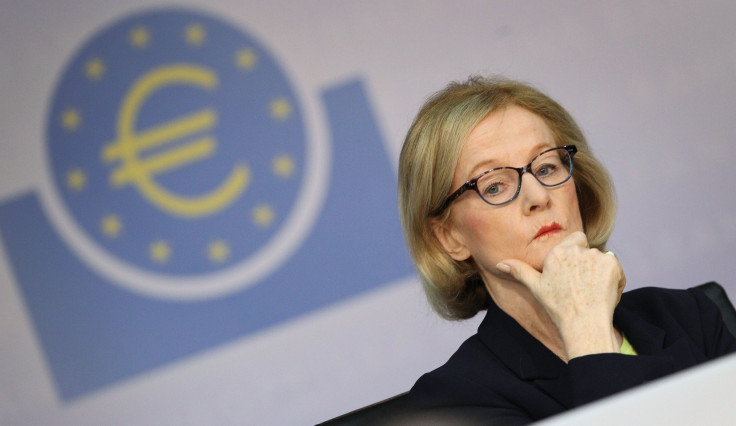Stabilizing Europe's Economy: European Central Bank Details Effort To Harmonize Regional Banking

The European Central Bank's effort to regulate banks under a single mechanism across the eurozone is helping to stabilize the region’s economy, a top official said Friday. The new framework has led to higher profits and increased capital among Europe's lending banks -- and could help the region mitigate the ripple effects of global economic events such as China’s slowdown.
As China decelerates and its stock market continues to tumble, fears of global contagion have triggered economic uncertainty and caused dips in financial markets around the world. At the same time, the European Central Bank (ECB) has sought to ensure stability in European markets by synchronizing banking regulation across the eurozone, said Daniele Nouy, president of the ECB's Supervisory Council, who detailed the institution’s plan to ensure growth and prevent another economic crisis.
The new framework, as detailed by Nouy at the Council on Foreign Affairs in New York, is a "Single Supervisory Mechanism" that looks to supervise banks across borders in order to pave the way for an integrated, pan-European economy.
Operating since late 2014, and headed by Nouy, the groundbreaking regulatory project has taken 123 of the largest lending banks in the eurozone under its direct supervision. The system oversees nearly all of the largest banks in the 19 eurozone countries. This Central Bank supervision aimed to ensure safe lending practices and prevent another recession like the financial crisis in 2008 that sunk the euro and wreaked havoc on the European banking system.

Before the creation of the Single Supervisory Mechanism, banks across Europe complied with regulation standards that often varied greatly from country to country. As Nouy pointed out in her speech Friday, "The supervisory authority stopped at national borders, but banking did not," adding, "We [in Europe] are more different in the banking systems and regulation authorities than I thought."
There was a need for a “single rule book,” as Nouy said, in order to level the playing field across banking systems, with the ultimate goal of making banks more resilient to crisis. The Single Supervisory Mechanism has served to harmonize banking, forcing banks across national lines to play by the same rules.
Nouy said the European Central Bank’s efforts for harmonization would also help debt-ridden Greece, for instance, a nation that has continued to struggle in its economic recovery since 2008. She said she way optimistic for Greek banks' recovery, saying "Any bank would have been severely weakened [after the crisis],” adding “that's why they need to be recapitalized." Recapitalization efforts that reorganized banking debt have been somewhat separate from banking supervision, though both are part of the European Central Bank's broader plan to stabilize economies across the continent.
Banks have been very open to the supervision, according to Nouy, especially because the synchronization so far has helped banks grow stronger, not limited their scope. Since the foundation of the Single Supervisory Mechanism in 2014, euro-area lending banks have already reported increased capital and higher profits, Bloomberg News reported Friday.
Nouy summarized the heart of the Single Supervisory Mechanism in her speech Friday, putting emphasis on the need for dialogue between euro-area countries and banking systems. "This is what SSM is about: consistency, comparability, and trust in the European banking system," she said.
© Copyright IBTimes 2024. All rights reserved.












